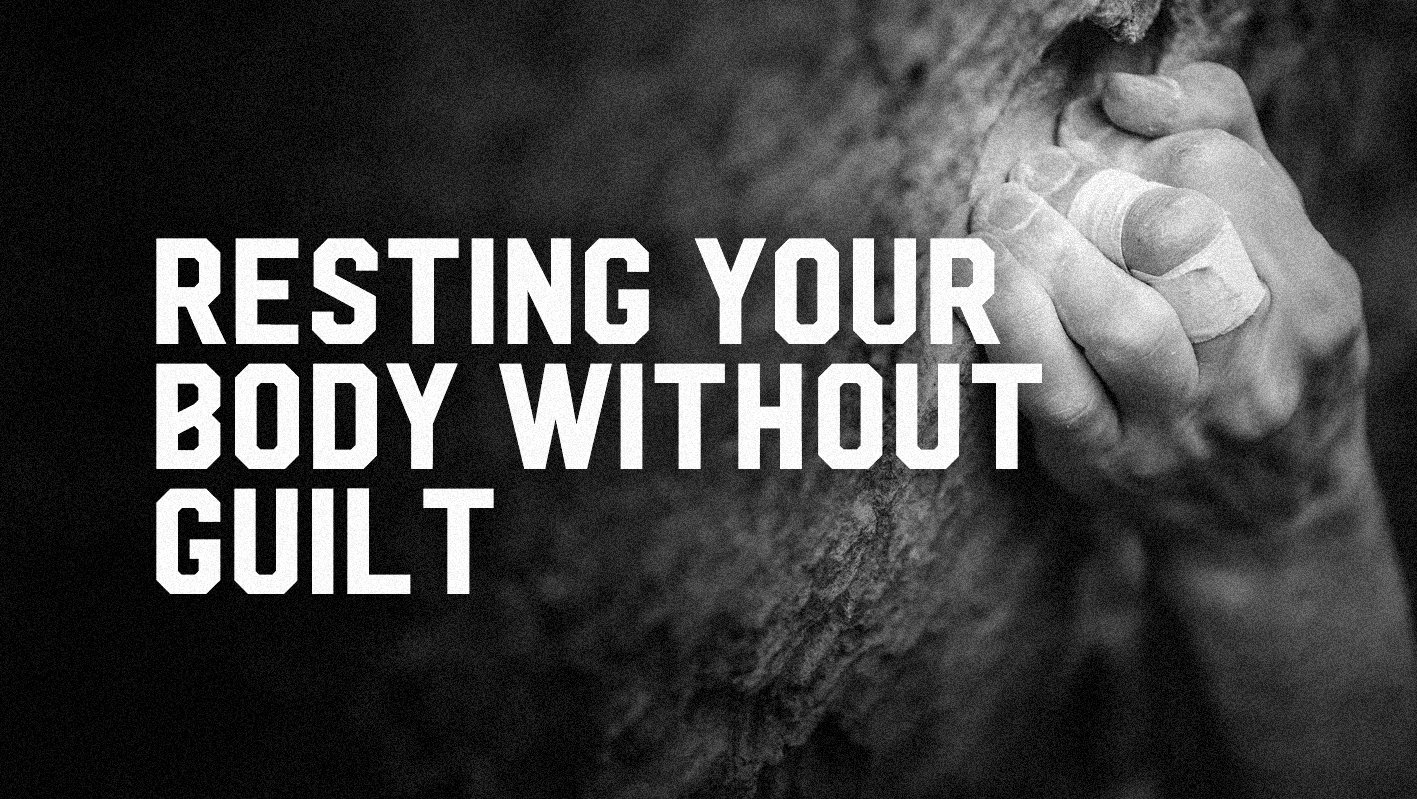
Have you felt a lack of motivation since the start of the Covid-19 crisis? Your mind isn’t focused on training anymore or don’t have access to the necessary tools? As climbers, the fear of losing your gains and abilities during a long break is a shared fear among many. That situation can lead to guilt, especially for those who cannot move as much as they would like. But maybe this is the opportunity to finally allow yourself an extended climbing rest? To better understand the real benefits and consequences of continuous rest, we sought the advice of Andrew Wilson, the head coach of the Canadian Climbing Competition Team.
HOW LONG FOR AN OPTIMAL REST?
The general rule, according to Andrew Wilson, is to take 2 to 3 days, or even up to 7 days of rest, with less emphasis on the volume of training, approximately each month. The majority of the programs being built over periods of 4 to 6 weeks, he recommends reducing the load by 50 to 65% of the volume, after each of these periods. However, considering the current situation, several athletes on the Canadian team have chosen to take several weeks of total rest, which is perfectly acceptable, according to the head coach. When deciding on timing, you have to consider when you want to be at your best, which is still not for several months for most athletes. Because the season is now over, he emphasizes that taking 2 to 3 weeks or more of complete rest is suitable and may even be beneficial.
TAKE A BREAK WITHOUT LOSING YOUR LEVEL
As athletes, we must not underestimate the importance we confer to climbing. Exercising daily helps us stay healthy during this period of isolation, but it is not by taking a break or taking a step back in training that we regress. Andrew Wilson wants to reassure athletes about this, arguing that it is possible to rest for a long period and still be ready, or better, stronger for the next season. This is also based on a study presented by the Canadian Sport Institute Pacific, where it has been demonstrated that after a full break of 8 weeks, then 10 weeks of training, Olympic athletes have regained 50% of their level and have surpassed their level with 20 weeks of training.
WHY TAKE A REST?
It is during rest that our body adapts to all the efforts made during training. By giving our bodies time to rebuild, it becomes stronger and can then take on a greater workload. During this time, one can focus on a few generally neglected aspects, such as biomechanics, mobility, recovery from injuries and personal development. On this point, Andrew notes that “it’s incredible to see how often the things that hold athletes back are not what they do in training, but what they do in their life outside of training” . Besides, he specifies that as little as two 45-minute exercise sessions per week can be enough to maintain his level of physical fitness and muscle mass.
Right now, the most important thing is to stay healthy and safe during this pandemic. The risk of wanting to keep on improving your performance is to be tempted to do things that are no longer in the interest of those around you or of public health. Priority must be put on our health, as well as the general
For more information from head coach Andrew Wilson, visit his page on Climbing Canada.
Need motivation to stay in shape? Join us for our BOOTCAMP sessions every Wednesday, 7 p.m. via Facebook live.


